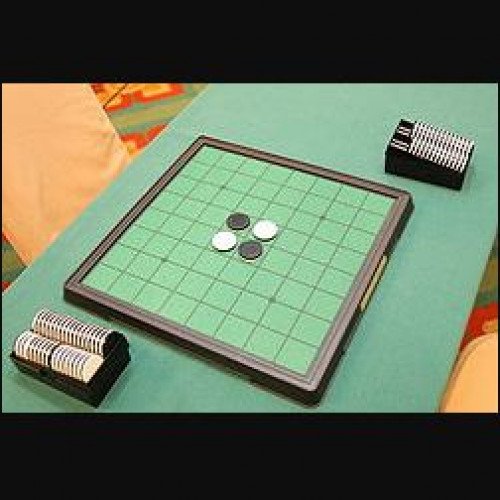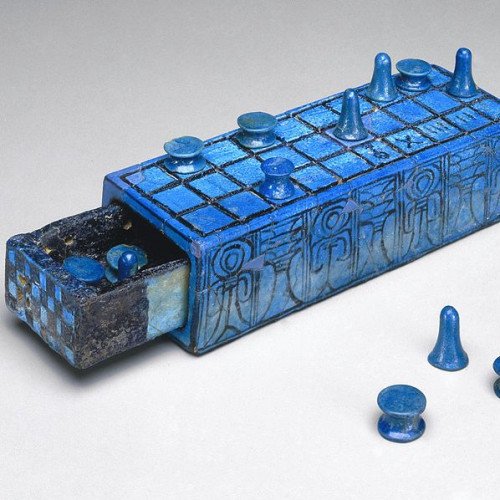REVERSI VS SENET

REVERSI
Reversi is a strategy board game for two players, played on an 8×8 uncheckered board. It was invented in 1883. Othello, a variant with a change to the board's initial setup, was patented in 1971. There are sixty-four identical game pieces called disks (often spelled "discs"), which are light on one side and dark on the other. Players take turns placing disks on the board with their assigned color facing up. During a play, any disks of the opponent's color that are in a straight line and bounded by the disk just placed and another disk of the current player's color are turned over to the current player's color. The objective of the game is to have the majority of disks turned to display one's color when the last playable empty square is filled. Goro Hasegawa claims that the origin of Reversi/Othello dates back 5,000 years. However, there is solid evidence that a game similar to Reversi/Othello existed since the 19th century. Each of the disks' two sides corresponds to one player; they are referred to here as light and dark after the sides of Othello pieces, but any counters with distinctive faces are suitable. The game may for example be played with a chessboard and Scrabble pieces, with one player letters and the other backs. The historical version of Reversi starts with an empty board, and the first two moves made by each player are in the four central squares of the board. The players place their disks alternately with their colors facing up and no captures are made. A player may choose to not play both pieces on the same diagonal, different from the standard Othello opening. It is also possible to play variants of Reversi and Othello where the second player's second move may or must flip one of the opposite-colored disks (as variants closest to the normal games). For the specific game of Othello, the game begins with four disks placed in a square in the middle of the grid, two facing white-side-up, two dark-side-up, so that the same-colored disks are on a diagonal. Convention has this such that the dark-side-up disks are to the north-east and south-west (from both players' perspectives), though this is only marginally consequential: where sequential openings' memorization is preferred, such players benefit from this. The dark player moves first.
Statistics for this Xoptio

SENET
Senet is a board game from ancient Egypt. The earliest representation of senet is dated to c. 2620 BCE from the Mastaba of Hesy-Re, while similar boards and hieroglyphic signs are found even earlier. The game fell out of use following the Roman periodand its original rules are the subject of conjecture. Senet is the oldest known board game. Fragmentary boards that could be senet have been found in First Dynasty burials in Egypt, c. 3100 BCE. The first unequivocal painting of this ancient game is from the Third Dynasty tomb of Hesy (c. 2686–2613 BCE). People are depicted playing senet in a painting in the tomb of Rashepes, as well as from other tombs of the Fifth and Sixth Dynasties (c. 2500 BCE). The oldest intact senet boards date to the Middle Kingdom, but graffiti on Fifth and Sixth Dynasty monuments could date as early as the Old Kingdom. At least by the time of the New Kingdom in Egypt (1550–1077 BCE), senet was conceived as a representation of the journey of the ka (the vital spark) to the afterlife. This connection is made in the Great Game Text, which appears in a number of papyri, as well as the appearance of markings of religious significance on senet boards themselves. The game is also referred to in chapter XVII of the Book of the Dead. A study on a senet board in the Rosicrucian Egyptian Museum, dating back to the early New Kingdom of Egypt, showed the evolution of the game from its secular origins into a more religious artifact. Senet also was played by people in neighboring cultures, and it probably came to those places through trade relationships between Egyptians and local peoples. It has been found in the Levant at sites such as Arad and Byblos, as well as in Cyprus. Because of the local practice of making games out of stone, there are more senet games that have been found in Cyprus than have been found in Egypt.